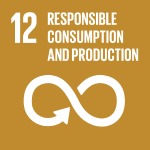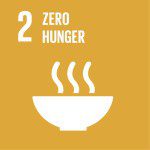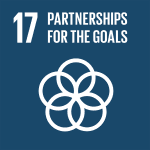Líderes mundiais se reuniram para discutir o estado atual dos assuntos internacionais na 70ªº Sessão da Assembleia Geral das Nações Unidas (AGNU). A sessão ocorreu em setembro na cidade de Nova York.
Embora a UNGA seja um evento anual, esta sessão foi particularmente importante porque as nações votaram para adotar 17 novas metas mensuráveis relacionadas ao desenvolvimento internacional futuro. Essas metas, chamadas de Objetivos de Desenvolvimento Sustentável (ODS) ou Objetivos Globais, foram projetadas para tornar o mundo um lugar melhor até 2030 por meio da cooperação dentro da comunidade internacional.
A Global FoodBanking Network (GFN) participou de vários eventos paralelos da AGNU na cidade de Nova York para mostrar apoio aos Objetivos Globais, vários dos quais estão alinhados com a missão da GFN.
Aqui estão três principais conclusões de duas semanas na AGNU:
 1. O problema do desperdício de alimentos é uma questão de crescente preocupação, e os países estão começando a agir sobre isso. Considere isto: se o desperdício de alimentos fosse um país, seria do tamanho da China. Também seria o terceiro maior contribuinte de gases de efeito estufa para o nosso clima. Basta dizer que desperdiçamos e perdemos muita comida. Objetivo Global #12 “Consumo e Produção Responsáveis”, nações ao redor do mundo se comprometem a reduzir a perda e o desperdício de alimentos.
1. O problema do desperdício de alimentos é uma questão de crescente preocupação, e os países estão começando a agir sobre isso. Considere isto: se o desperdício de alimentos fosse um país, seria do tamanho da China. Também seria o terceiro maior contribuinte de gases de efeito estufa para o nosso clima. Basta dizer que desperdiçamos e perdemos muita comida. Objetivo Global #12 “Consumo e Produção Responsáveis”, nações ao redor do mundo se comprometem a reduzir a perda e o desperdício de alimentos.
A GFN participou do evento “Food Loss & Waste” do Departamento de Agricultura dos Estados Unidos para discutir a necessidade urgente de os países começarem a implementar planos para atingir essa meta. E eles estão. Os EUA, que desperdiçam 30% de todos os alimentos a cada ano, anunciaram recentemente que reduziriam o desperdício de alimentos no país em 50% até 2030. Metas semelhantes estão sendo discutidas ou adotadas em outros países.
O banco de alimentos é uma maneira de reduzir o desperdício de alimentos e, em última análise, proteger o meio ambiente. Os bancos de alimentos pegam alimentos excedentes perfeitamente comestíveis que, de outra forma, seriam desperdiçados e os redistribuem para os necessitados. Veja aqui para mais.
 2. A juventude é fundamental para combater a fome. Você sabia que cerca de 25 por cento do mundo tem entre 10 e 24 anos? À medida que esse grupo demográfico amadurece, ele desempenhará um papel fundamental em ajudar as nações a atingir Objetivo Global #2: Fome Zero.
2. A juventude é fundamental para combater a fome. Você sabia que cerca de 25 por cento do mundo tem entre 10 e 24 anos? À medida que esse grupo demográfico amadurece, ele desempenhará um papel fundamental em ajudar as nações a atingir Objetivo Global #2: Fome Zero.
A GFN participou do evento Mobilizing Generation Zero Hunger da ONU, onde chefes de estado e líderes do mundo corporativo e de ONGs se reuniram para energizar e inspirar jovens a ajudar a eliminar a fome. A GFN trouxe sua própria Embaixadora Jovem, Samantha Yen, de 16 anos, para o evento.
Combater a fome é o cerne da missão da GFN, e o banco de alimentos é uma maneira de os jovens se envolverem mais no enfrentamento dessa questão importante. A GFN trabalha regularmente com jovens líderes no combate à fome por meio do banco de alimentos.
 3. Claro, os Objetivos Globais não podem ser alcançados sem parcerias e colaboração eficazes entre todos os setores. É por isso que a AGNU adoptou Objetivo Global #17: Parcerias para o Objetivo.
3. Claro, os Objetivos Globais não podem ser alcançados sem parcerias e colaboração eficazes entre todos os setores. É por isso que a AGNU adoptou Objetivo Global #17: Parcerias para o Objetivo.
A GFN apoia a comunidade internacional para atingir suas metas até 2030. Somos um parceiro ativo no Desafio Fome Zero do Secretário-Geral da ONU, Ban Ki-moon, e na Iniciativa SAVE FOOD da Organização das Nações Unidas para Agricultura e Alimentação. Também colaboramos efetivamente com corporações e organizações de serviços para combater a fome no mundo. Organizações e empresas com as quais fazemos parceria incluem Rotary International, Lions Clubs International, Grant Thornton, Griffith Laboratories, Kellogg Company, entre outras. Veja aqui mais sobre nossas parcerias.
O ano de 2030 pode parecer muito distante, mas há muito trabalho a ser feito se quisermos ter sucesso em atingir os Objetivos Globais. A GFN está animada para ajudar o mundo a atingir os Objetivos Globais #2, #12 e #17 por meio de seu trabalho em bancos de alimentos.
Você pode se juntar a nós em nossa missão apoiando nosso trabalho. Para agir, veja aqui.